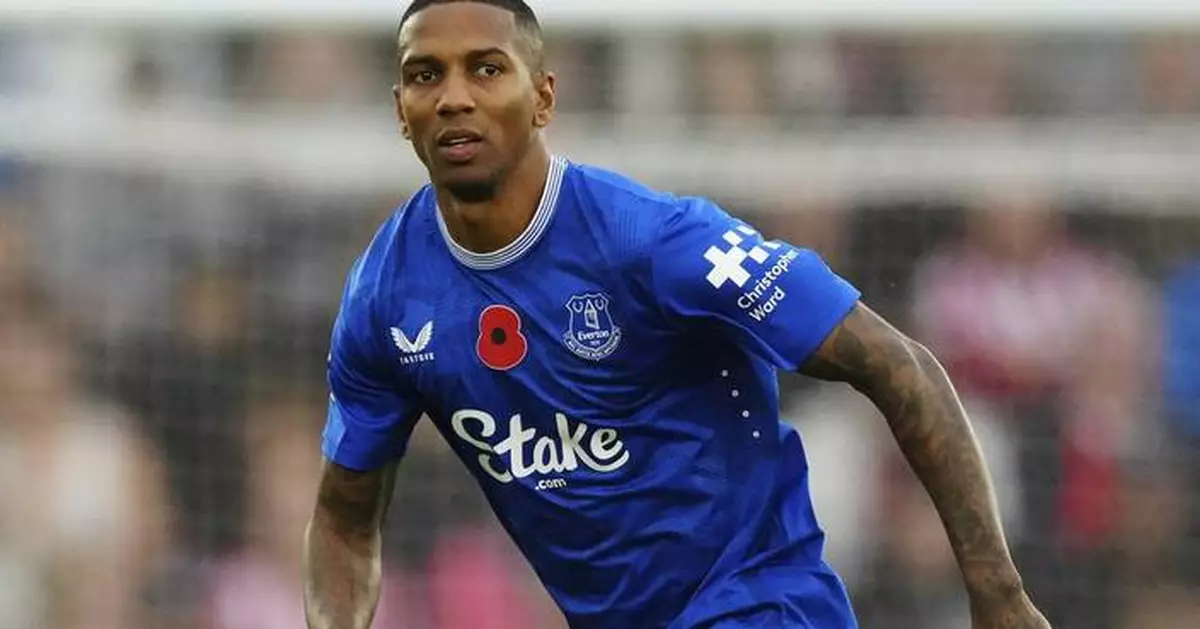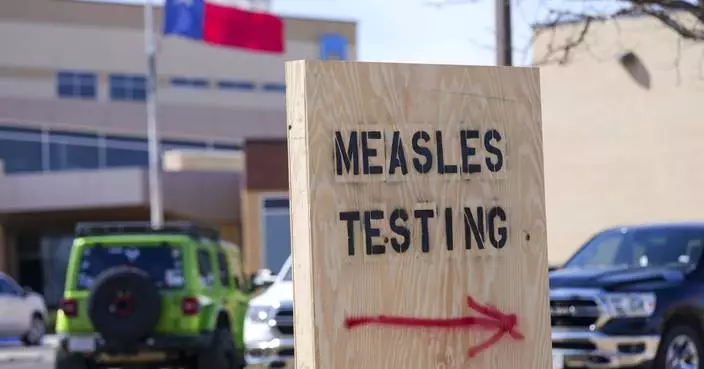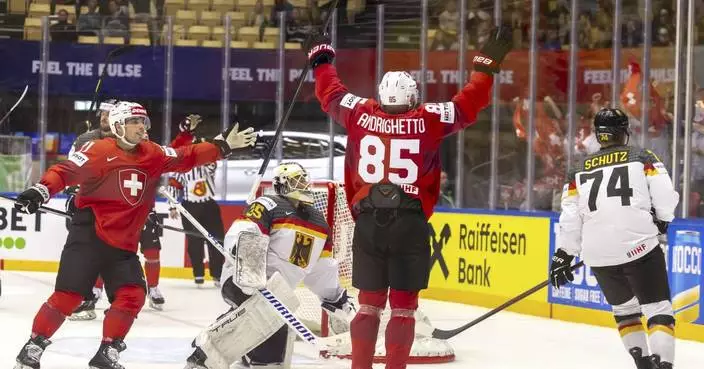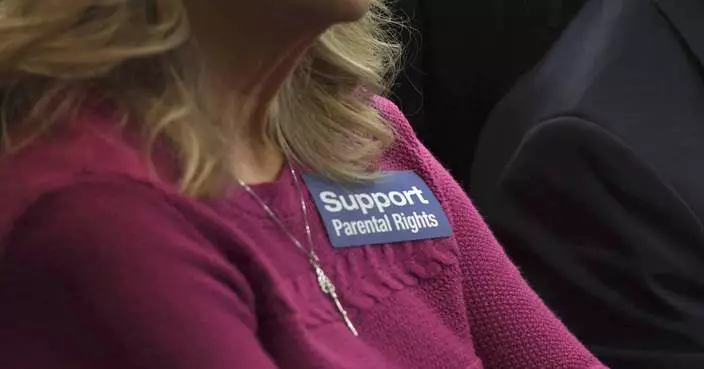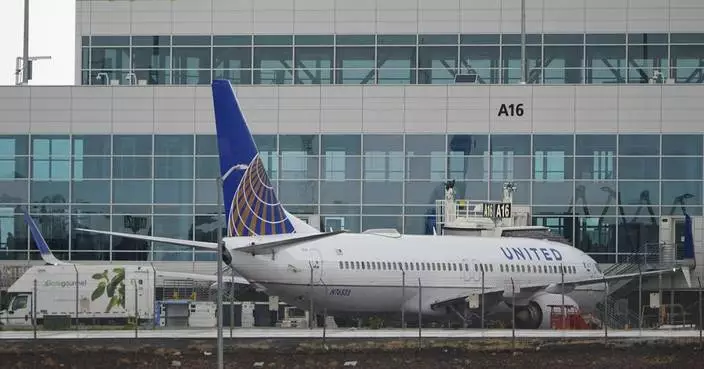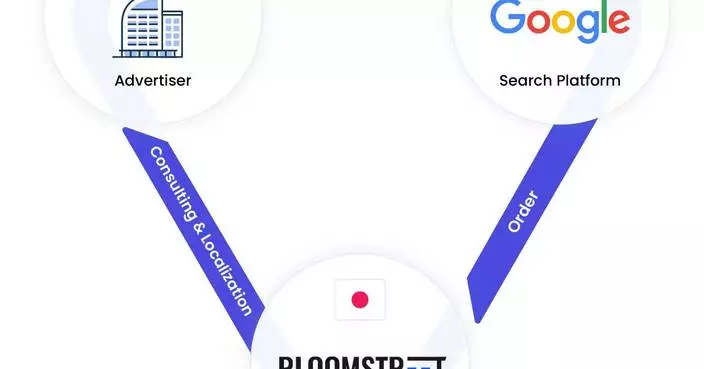Peterborough manager Darren Ferguson said an unnamed Everton player “had a pop” at him after he denied Tyler Young the opportunity to come on as a substitute against his father Ashley in Thursday's FA Cup third round match.
While former England international Ashley came off the bench in the second half for Everton, Tyler was an unused sub in the game at Goodison Park. Everton won 2-0 against the third-division team.
“I’ve got to do what’s best for my team and we’re not a charity case,” Ferguson said. “As much as I wanted Tyler to go on with his dad, one of their players had a bit of a pop at me, which is bang out of order.”
Ferguson used his fifth and final substitute in the 88th minute with Peterborough 1-0 down and chasing an equalizer.
“I’ve got to do what’s best for our team and at that point at 1-0 I’m trying to get a result,” he said.
When both Youngs were named as substitutes for the match it kept alive the prospect of a memorable showdown between father and son in soccer's oldest knockout competition. But with Peterborough trailing 1-0 until added time, Ferguson opted against calling for Tyler, who has only made one senior appearance for the club.
Everton won 2-0 through goals from Beto and Iliman Ndiaye.
Ashley Young won the FA Cup in 2016 with Manchester United as well as league titles in England and Italy. But he said before the match that the chance to share the field with his son would be bigger than any trophy he has lifted.
“I’ve said it for (a) numerous amount of years that if there was a possibility that we was able to play with each other or play against each other, it tops everything I’ve done in my career,” he told Everton’s website.
The pair spoke on the field before kickoff and Ashley embraced his son after the final whistle.
Midfielder Tyler spent time at Arsenal, Queens Park Rangers and MK Dons before joining third-division Peterborough last year.
He made his debut for the club as a substitute in October.
Ashley is in the latter stages of a career that has seen him represent England at the World Cup and play for storied clubs such as United, Inter Milan and Aston Villa.
Among other instances of fathers and sons in the same game, World Cup winner Rivaldo played and scored in the same game as his son Rivaldinho in a Brazilian second-division match in 2015.
In October, LeBron and Bronny James become the first father and son to play together in the NBA.
In 1990, Ken Griffey Jr. and Ken Griffey Sr. hit back-to-back home runs in Major League Baseball.
James Robson is at https://twitter.com/jamesalanrobson
AP soccer: https://apnews.com/hub/soccer
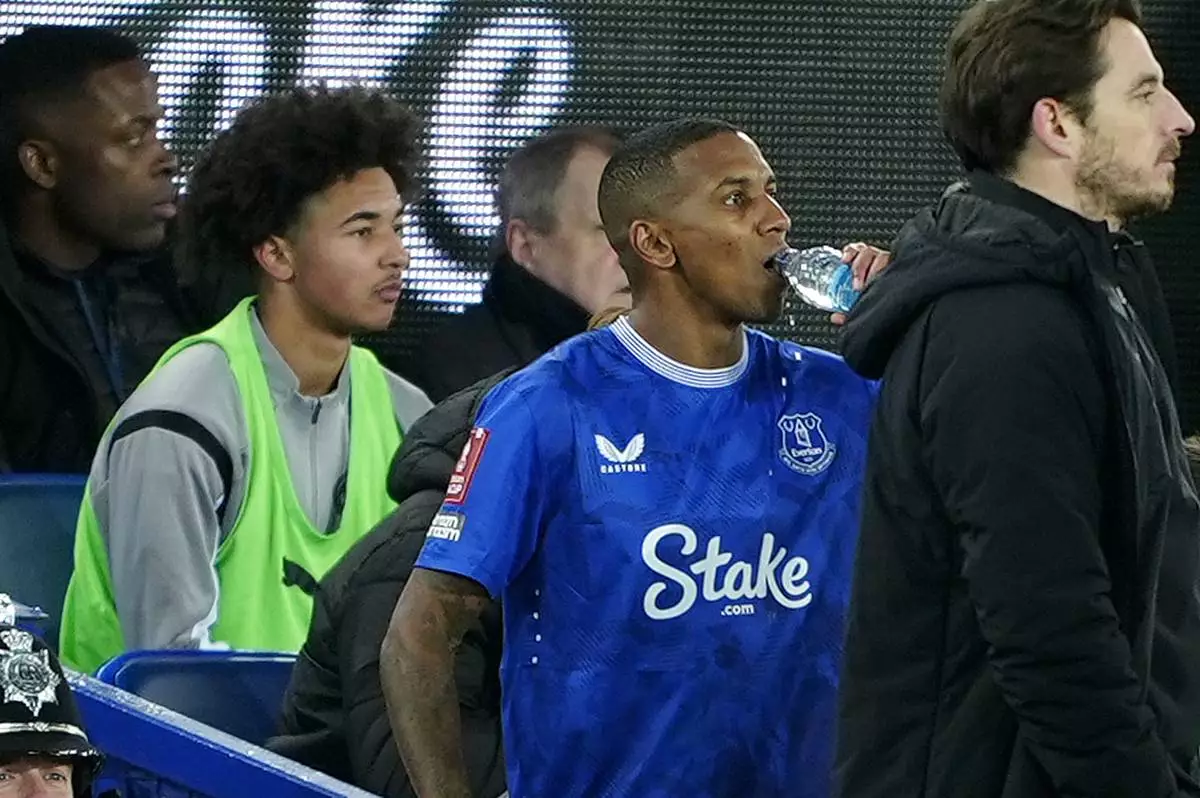
Peterborough United's Tyler Young, left, sits on the substitute's bench as his father Everton's Ashley Young, center, prepares to enter the game during the English FA Cup third round soccer match between Everton and Peterborough United at Goodison Park, Liverpool, England, Thursday Jan. 9, 2025. (Peter Byrne/PA via AP)
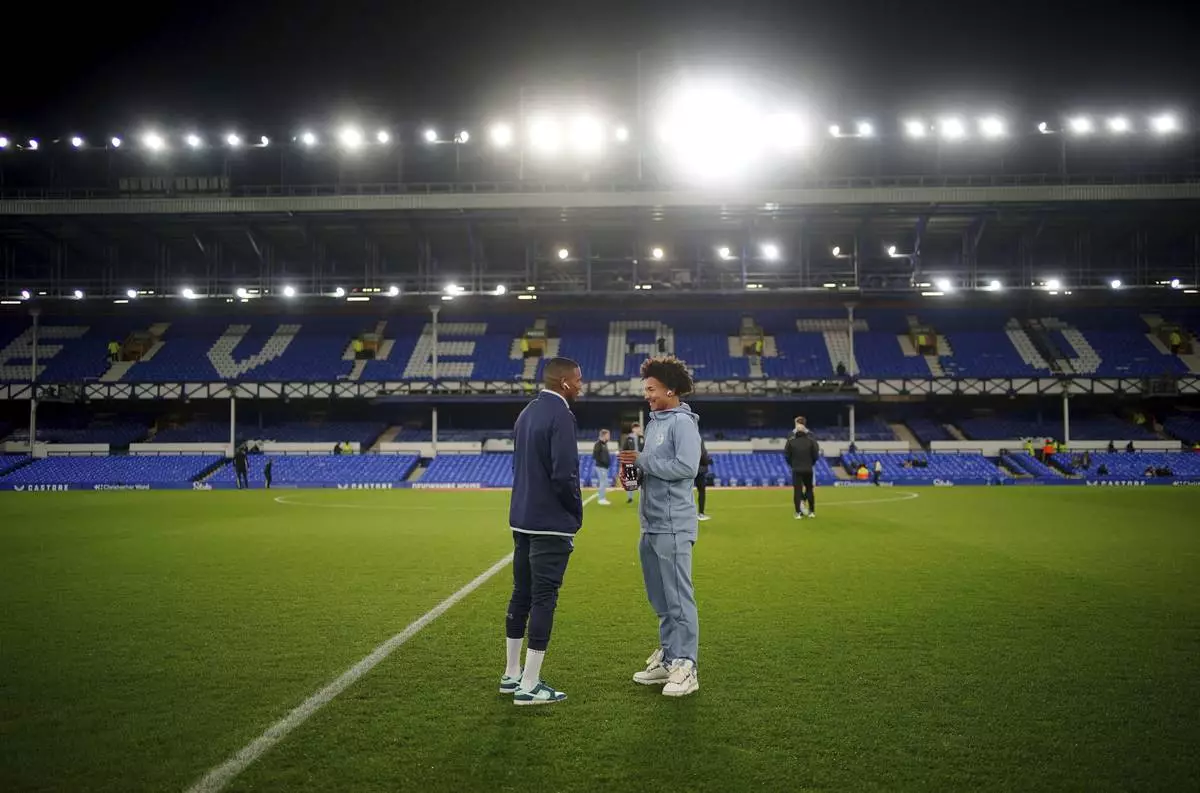
Everton's Ashley Young, left, speaks with his son, Peterborough United's Tyler Young, before the Emirates FA Cup third round match at Goodison Park, Liverpool, England, Thursday Jan. 9, 2025. (Peter Byrne/PA via AP)
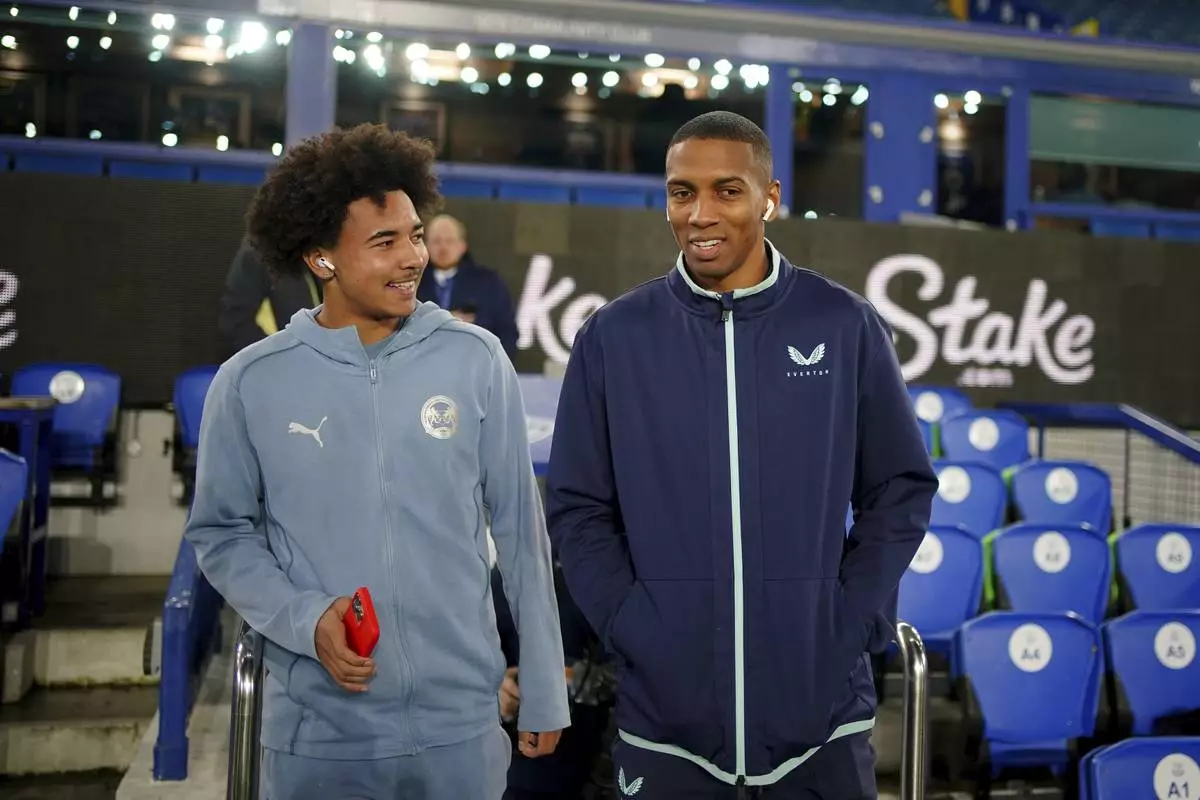
Everton's Ashley Young, right, speaks with his son, Peterborough United's Tyler Young, before the Emirates FA Cup third round match at Goodison Park, Liverpool, England, Thursday Jan. 9, 2025. (Peter Byrne/PA via AP)
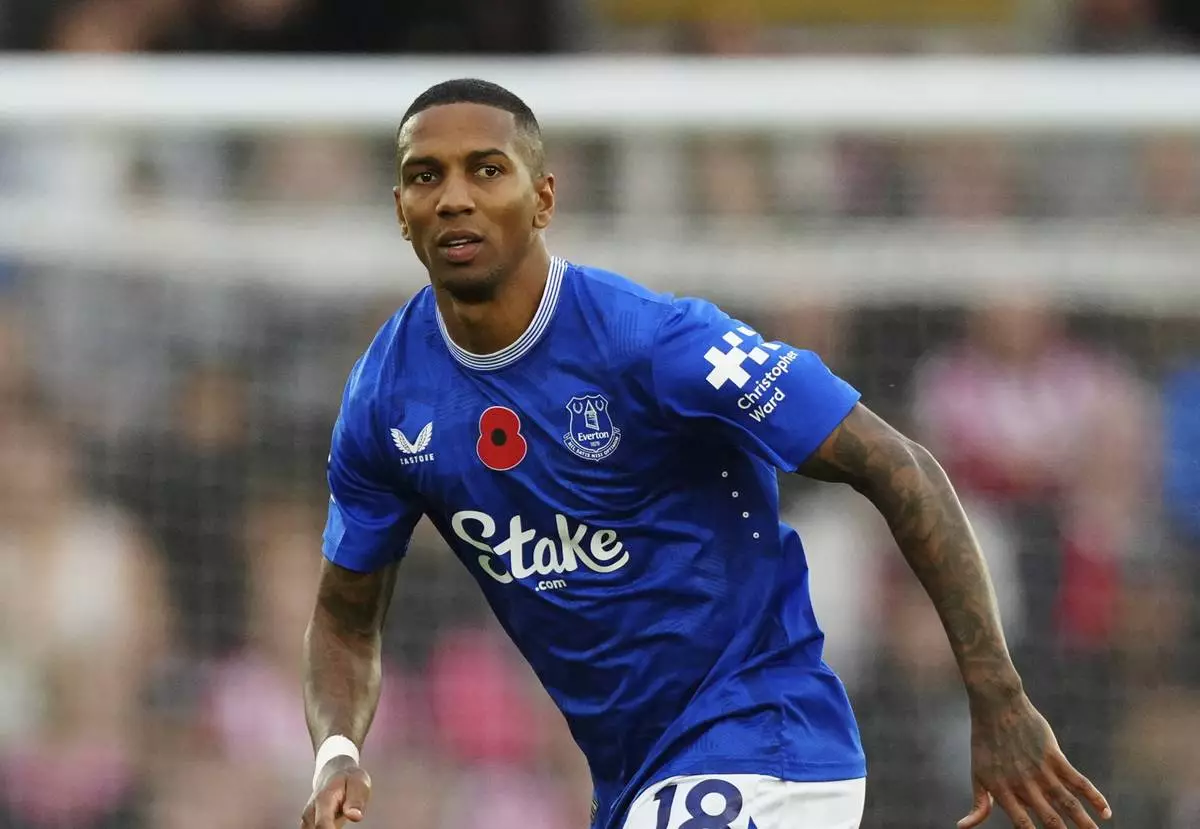
FILE - Everton's Ashley Young runs into position during the English Premier League soccer match between Southampton and Everton, at the St Marys Stadium in Southampton, Saturday, Nov 2, 2024. (AP Photo/Dave Shopland,File)
ANKARA, Turkey (AP) — Russia and Ukraine are set to hold their first direct peace talks in three years, both countries said Thursday, but hopes for a breakthrough remained dim after Russian President Vladimir Putin spurned an offer by Ukrainian President Volodymyr Zelenskyy to meet face-to-face in Turkey.
Zelenskyy said he is sending a team headed by his defense minister from the Turkish capital Ankara to Istanbul to meet a Russian delegation, even though Moscow's side doesn’t include “anyone who actually makes decisions.”
The Ukrainian side would be headed by Defense Minister Rustem Umerov, and its aim is “to attempt at least the first steps toward de-escalation, the first steps toward ending the war — namely, a ceasefire,” he said.
Few had expected Putin to show up in Turkey, and his absence punctured any hope of significant progress toward ending the 3-year-old war amid peace efforts in recent months by the Trump administration and Western European leaders. It also raised the prospect of intensified international sanctions on Russia that have been threatened by the West.
Zelenskyy, who flew Thursday to Ankara after challenging Putin to sit down with him, accused Moscow of not making a serious effort to end the war by sending a low-level negotiating team that he described as “a theater prop.”
His proposal to Putin came amid a flurry of maneuvering last weekend as each side sought a diplomatic advantage.
Zelenskyy said he decided to send the delegation to Istanbul to demonstrate to U.S. President Donald Trump that Ukraine wants to end the fighting.
The war has killed tens of thousands of soldiers on both sides and more than 12,000 Ukrainian civilians, according to the U.N. Russian forces are preparing a fresh military offensive, Ukrainian government and Western military analysts say.
At least five civilians were killed and 29 wounded in the past day, according to authorities in five eastern regions of Ukraine where Russia is trying to advance.
The head of the Russian delegation, presidential aide Vladimir Medinsky, said in Istanbul that the representatives were ready to meet Ukrainian officials.
“The task of these direct negotiations with Ukraine is to establish long-term peace sooner or later by eliminating the root causes of this conflict,” he said in a brief statement.
It was not clear when they would meet. Medinsky said late Thursday that the Russian delegation would be waiting for Ukrainian officials at 10 a.m. Friday.
U.S. Secretary of State Marco Rubio said he would confer Friday in Istanbul with Turkish Foreign Minister Hakan Fidan and the Ukrainian delegation, adding that the Russian delegation would be meeting with other members of the U.S. team and that he hoped all sides could get together.
“We don’t have high expectations of what will happen tomorrow. And frankly, at this point, I think it’s abundantly clear that the only way we’re going to have a breakthrough here is between President Trump and President Putin,” Rubio told reporters in Antalya, Turkey, where he was attending a NATO foreign ministers meeting.
Turkish President Recep Tayyip Erdogan earlier welcomed Zelenskyy to the presidential palace in Ankara for their own talks. Zelenskyy heads Friday to Albania for a gathering of European officials.
The diplomatic maneuvering began Saturday when European leaders met Zelenskyy in Kyiv and urged the Kremlin to agree to a full, unconditional 30-day ceasefire as a first step toward peace. Putin responded early Sunday by proposing direct talks with Ukraine in Istanbul. Then came Zelenskyy's challenge to Putin for face-to-face talks.
After days of silence, Kremlin spokesman Dmitry Peskov finally said Thursday that Putin had no plans to travel to Istanbul in the next few days.
Trump said he was not surprised that Putin was a no-show. He had pressed for Putin and Zelenskyy to meet but brushed off the Kremlin leader’s decision not to attend.
“I didn’t think it was possible for Putin to go if I’m not there,” Trump told reporters in Doha, Qatar, on the third day of his visit to the Middle East.
Trump said a meeting between him and Putin was crucial to breaking the deadlock.
“I don’t believe anything’s going to happen whether you like it or not, until (Putin) and I get together,” he said on Air Force One while traveling from Doha to Abu Dhabi, the capital of the United Arab Emirates. “But we’re going to have to get it solved because too many people are dying.”
Peskov said Putin has no plans to meet with Trump in the coming days.
Medinsky, Putin's aide, is leading the Russian team that also includes three other senior officials, the Kremlin said. Putin also appointed four lower-level officials as “experts” for the talks in Istanbul.
Also absent from the talks were Russian Foreign Minister Sergey Lavrov and Putin’s foreign policy adviser Yuri Ushakov, both of whom represented Russia at talks with the U.S. in Saudi Arabia in March.
The top-level Ukrainian delegation included Umerov, Foreign Minister Andrii Sybiha and the head of the Ukrainian presidential office, Andriy Yermak, a Ukrainian official said. Zelenskyy will sit at the negotiating table only with Putin, said presidential adviser Mykhailo Podolyak.
Putin met Wednesday with senior government officials and members of the delegation in preparation for the talks, Peskov said. Defense Minister Andrei Belousov, General Staff chief Valery Gerasimov and National Security Council secretary Sergei Shoigu attended.
The Kremlin billed the Istanbul talks as a “restart” of peace negotiations held there in 2022 that quickly collapsed. Moscow accused Ukraine and the West of wanting to continue fighting, while Kyiv said Russia’s demands amounted to an ultimatum, not something both sides could agree on. That delegation also was also headed by Medinsky.
Putin's proposal came after more than three months of diplomacy kick-started by Trump, who promised during his campaign to end the war swiftly, although it's been hard to pull off. The Trump administration in recent weeks indicated it might walk away from the effort if there was no tangible progress soon.
Sybiha, the Ukrainian foreign minister, met with Rubio and Sen. Lindsey Graham on Wednesday night in Antalya.
Sybiha reaffirmed Ukraine’s support for Trump’s mediation efforts and thanked the U.S. for its continued involvement, urging Moscow to “reciprocate Ukraine’s constructive steps” toward peace. "So far, it has not,” Sybiha said.
On Thursday morning, Sybiha also met with other European foreign ministers, including his French counterpart, Jean-Noël Barrot, who in a post on X reiterated the call for a ceasefire and the threat of “massive sanctions” if Russia doesn't comply.
“We’re in a very difficult spot right now, and we hope that we can find the steps forward that provide for the end of this war in a negotiated way and the prevention of any war in the future," Rubio said Thursday.
British Prime Minister Keir Starmer accused Putin of “standing in the way of peace.”
“There was only one country that started this conflict — that was Russia. That was Putin. There’s only one country now standing in the way of peace — that is Russia. That is Putin,” he said in a visit to Tirana, Albania.
Barrot echoed that sentiment: “In front of Ukrainians, there is an empty chair, one that should have been occupied by Vladimir Putin,” he said. Putin "is dragging his feet and in all evidence does not want to enter into these peace discussions.”
Associated Press writers Lorne Cook in Brussels; Illia Novikov and Samya Kullab in Kyiv, Ukraine; Dasha Litvinova in Tallinn, Estonia; Aamer Madhani in Dubai, United Arab Emirates; and Matthew Lee in Antalya, Turkey, contributed to this report.
Follow AP’s coverage of the war in Ukraine at https://apnews.com/hub/russia-ukraine
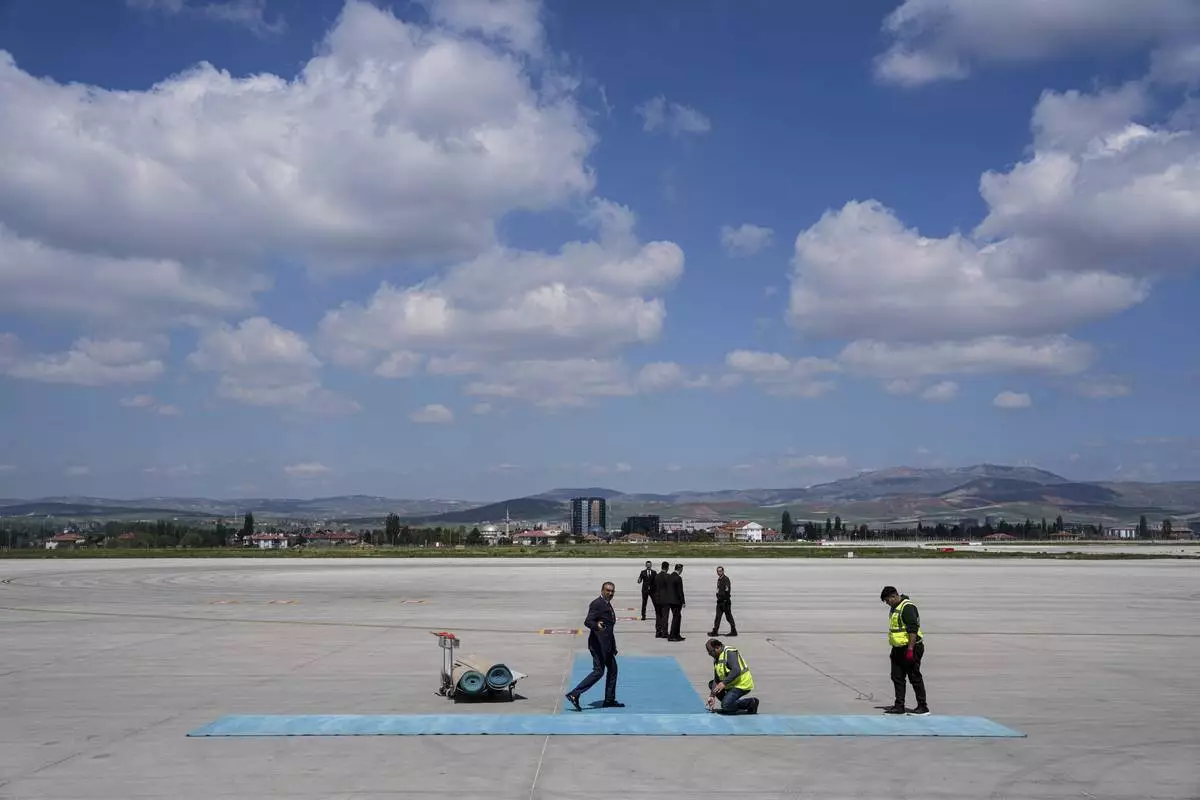
Airport workers prepare a carpet before arrival of Ukrainian President Volodymyr Zelenskyy at Esenboga airport in Ankara, Turkey, Thursday, May 15, 2025. (AP Photo/Evgeniy Maloletka)
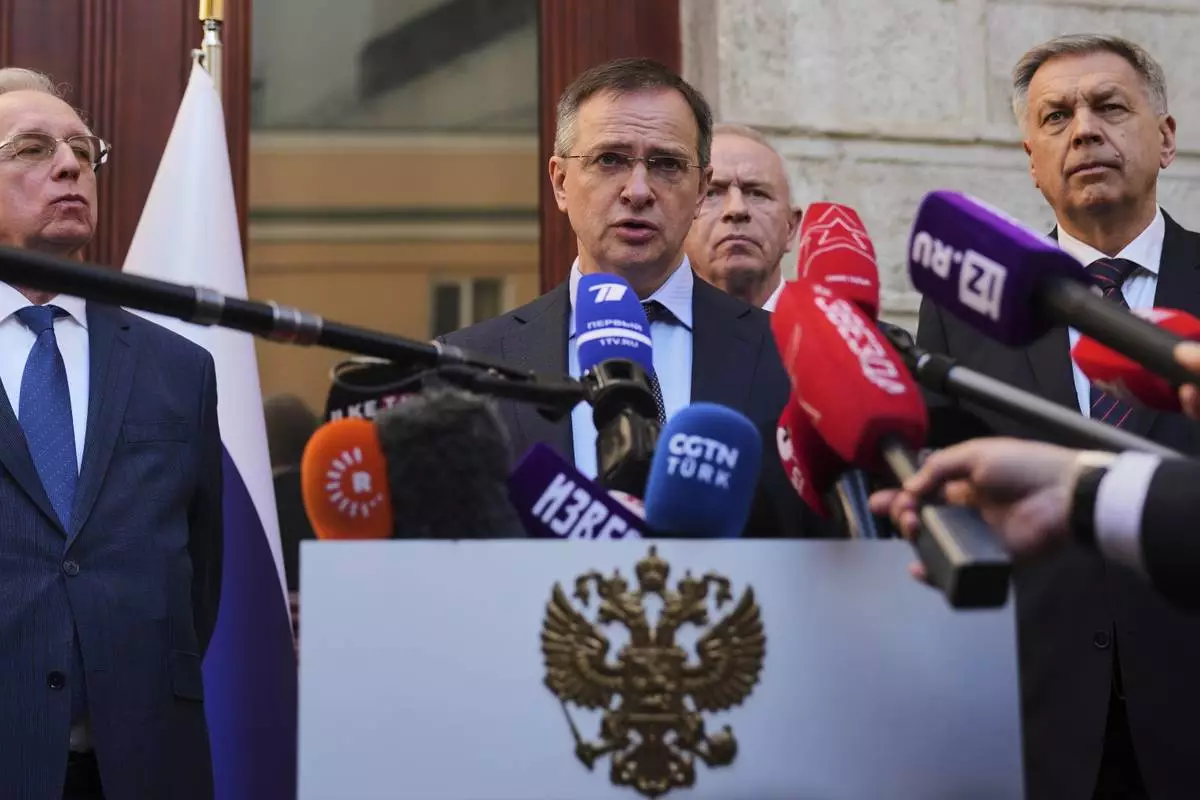
Russian presidential aide, Vladimir Medinsky, gives an statement to journalists at the Russian consulate in Istanbul, Turkey, Thursday, May 15, 2025. (AP Photo/Francisco Seco)

Ukrainian President Volodymyr Zelenskyy talks to journalists at the Ukrainian Embassy in Ankara, Turkey, Thursday, May 15, 2025. (AP Photo/Evgeniy Maloletka)
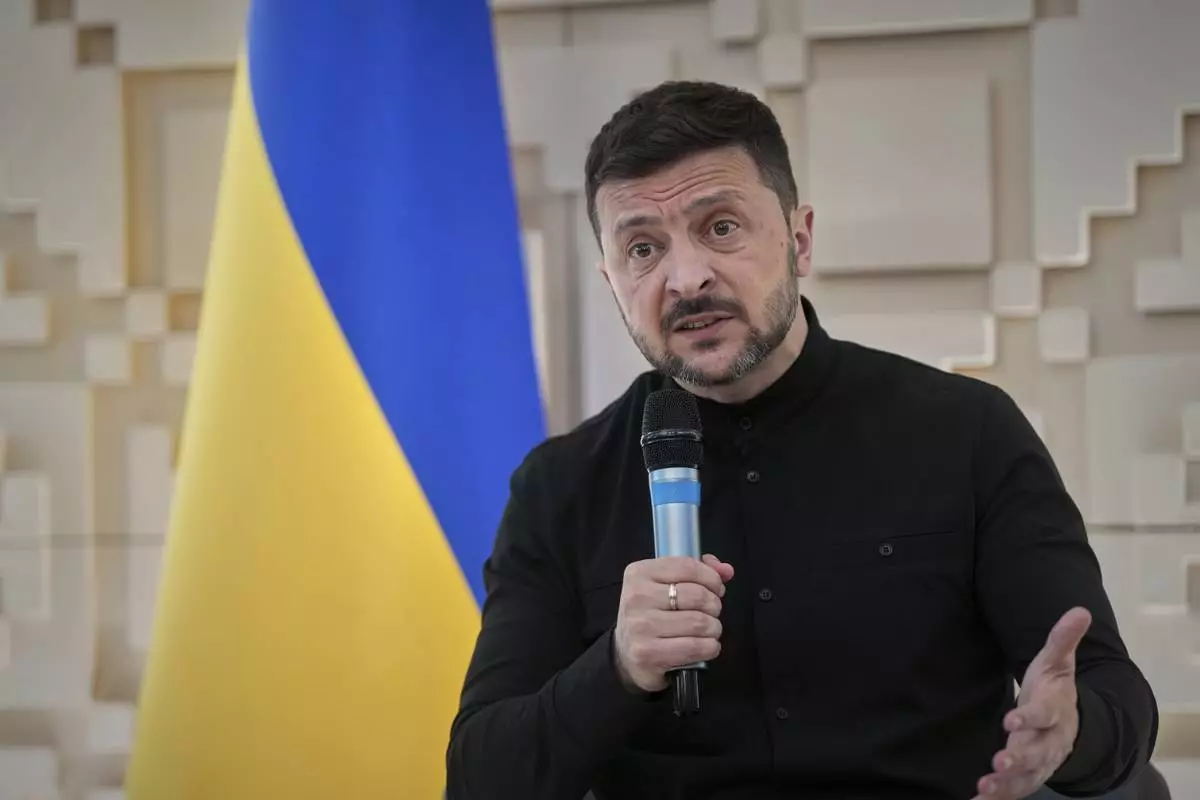
Ukrainian President Volodymyr Zelenskyy talks to journalists at the Ukrainian Embassy in Ankara, Turkey, Thursday, May 15, 2025. (AP Photo/Evgeniy Maloletka)
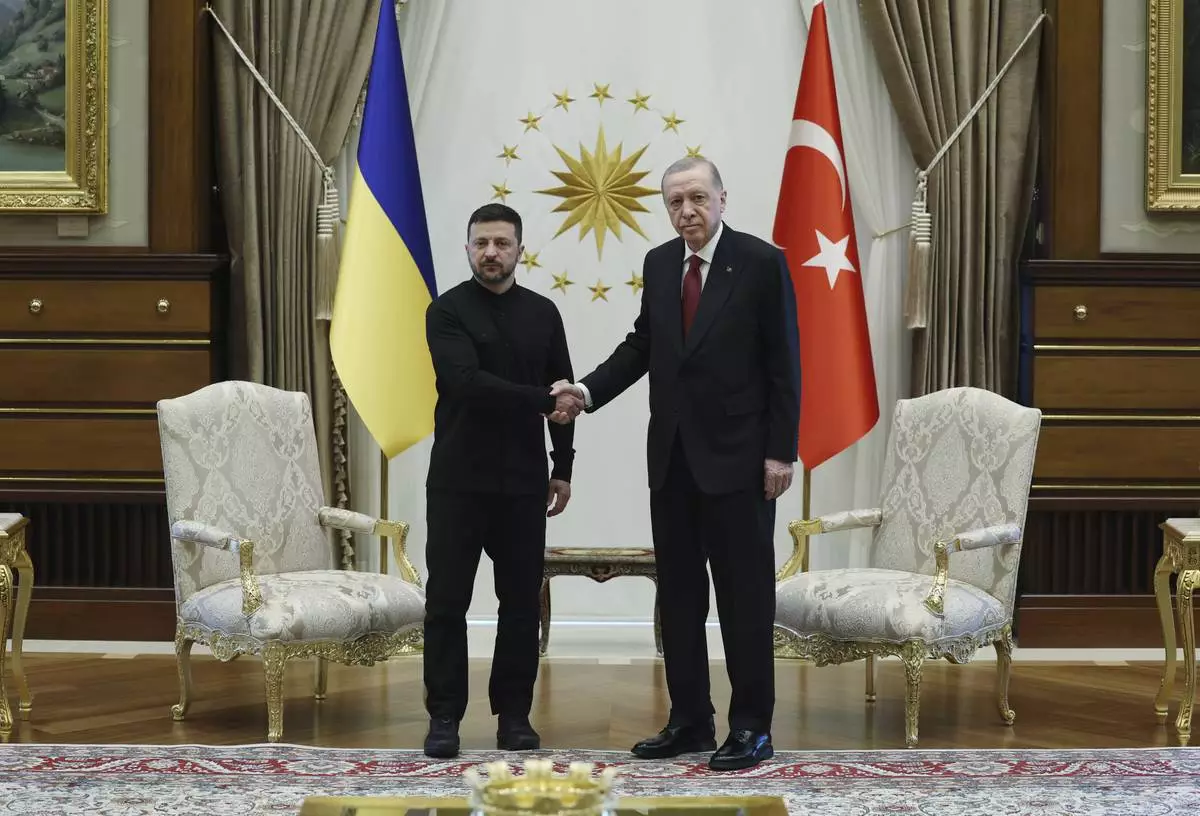
In this handout photo released by Turkish Presidency, Turkish President Recep Tayyip Erdogan, right, shakes hands with his Ukrainian counterpart Volodymyr Zelenskyy during their meeting at the Presidential palace in Ankara, Thursday, May 15, 2025. (Turkish Presidency via AP)
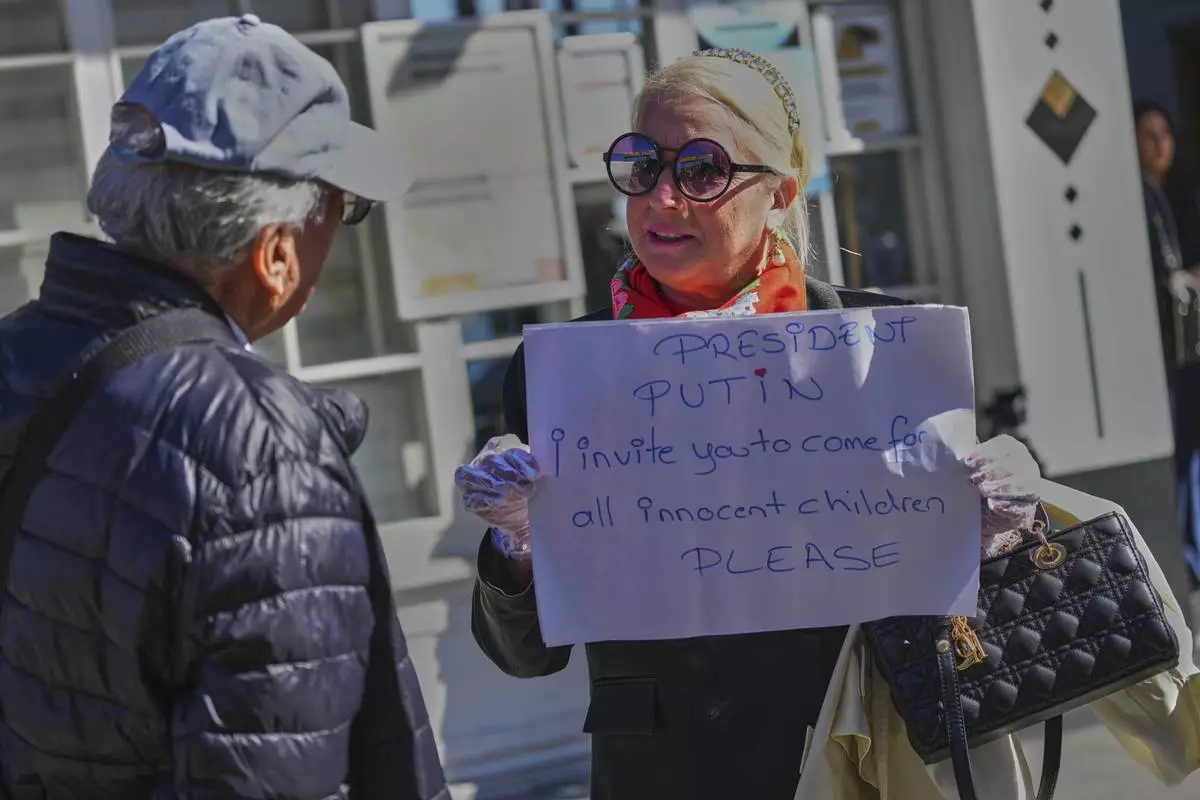
Ayse Sahil, whose family emigrated from Bolshevik in Russia, holds a board near Dolmabahce palace where talks between Russian and Ukrainian delegations are expected, in Istanbul, Turkey, Thursday, May 15, 2025. (AP Photo/Dilara Acikgoz)
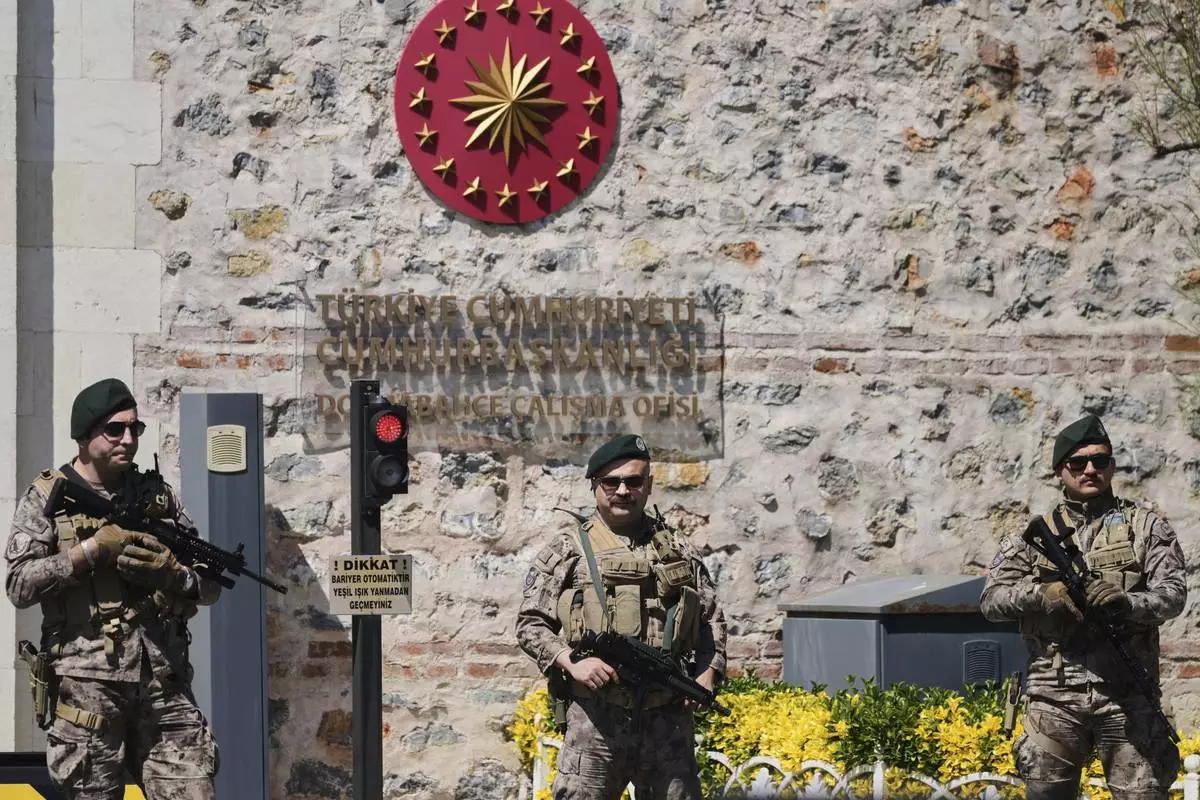
Turkish security members stand guard at Dolmabahce palace where talks between Russian and Ukrainian delegations are expected, in Istanbul, Turkey, Thursday, May 15, 2025. (AP Photo/Dilara Acikgoz)
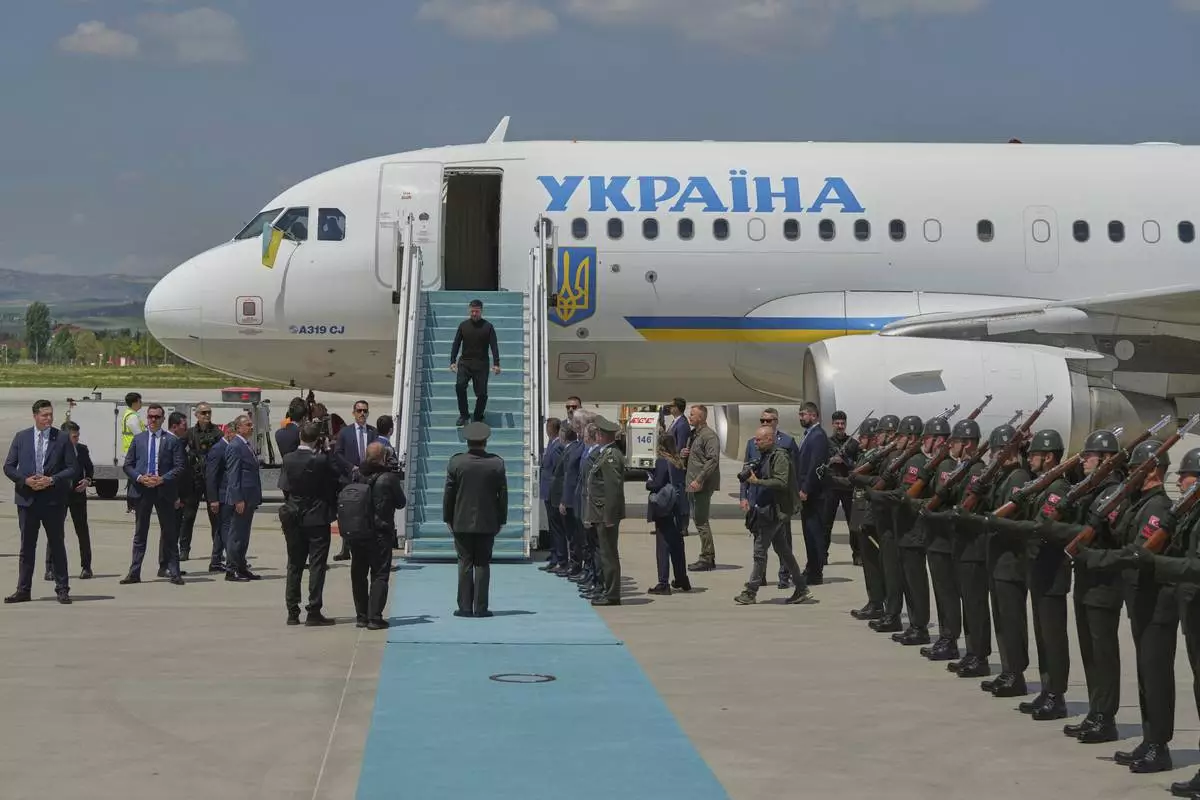
Ukrainian President Volodymyr Zelenskyy walks down the stairs from his plane upon his arrival at Esenboga airport in Ankara, Turkey, Thursday, May 15, 2025. (AP Photo/Evgeniy Maloletka)

Ukrainian President Volodymyr Zelenskyy gestures to journalists as he leaves upon his arrival at Esenboga airport in Ankara, Turkey, Thursday, May 15, 2025. (AP Photo/Evgeniy Maloletka)
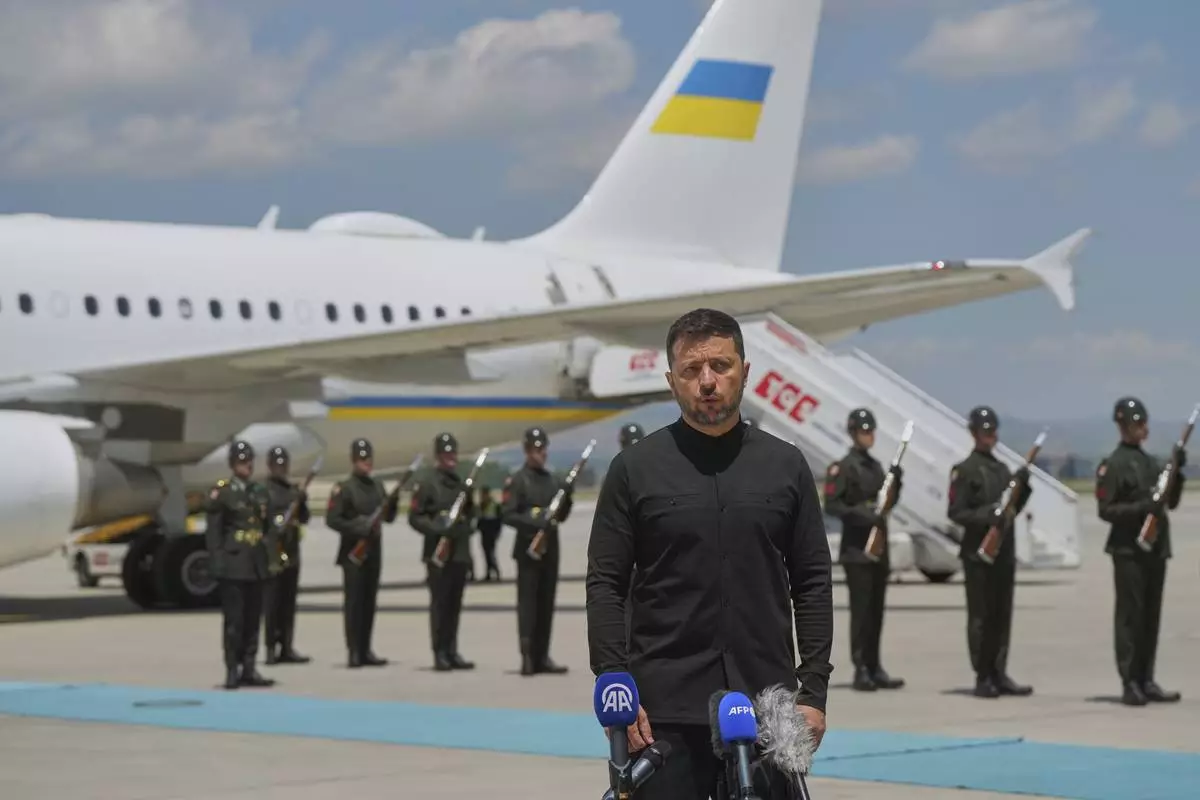
Ukrainian President Volodymyr Zelenskyy talks to journalists as he arrives at Esenboga airport in Ankara, Turkey, Thursday, May 15, 2025. (AP Photo/Evgeniy Maloletka)
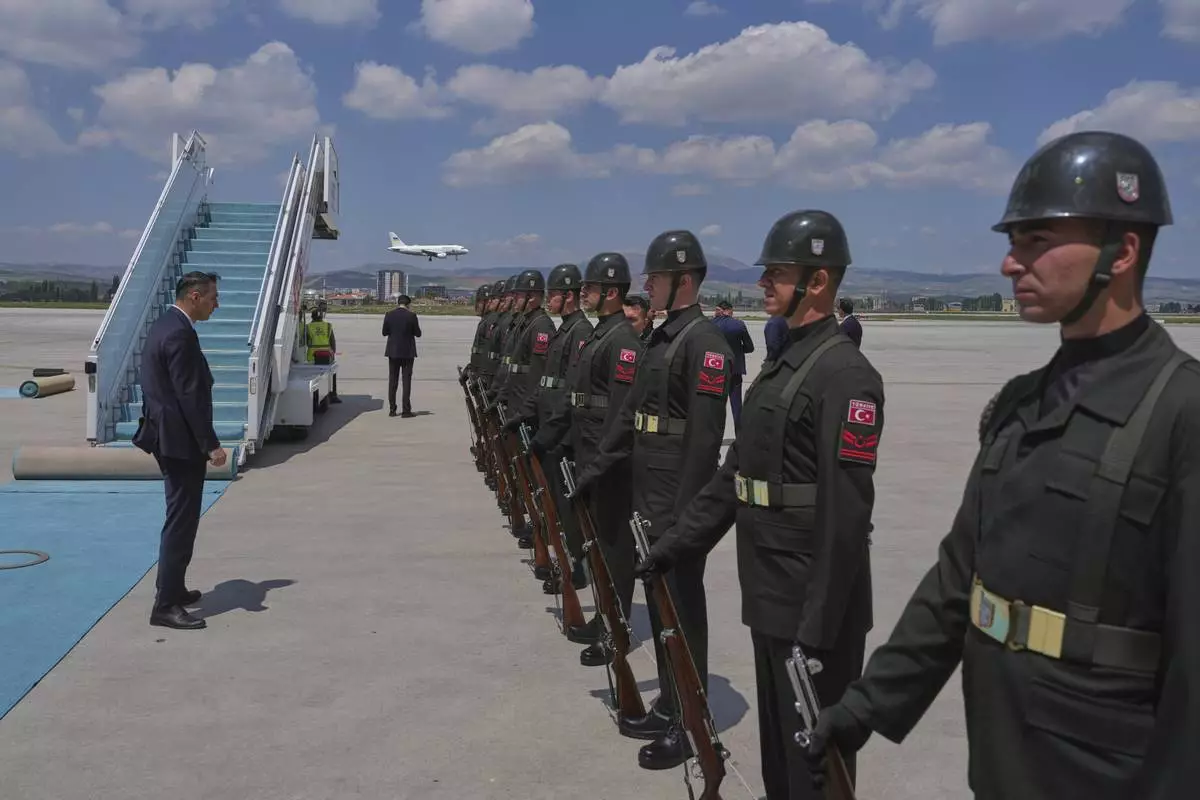
Ukrainian official plane, background, with Ukrainian President Volodymyr Zelenskyy on board lands at Esenboga airport in Ankara, Turkey, Thursday, May 15, 2025. (AP Photo/Evgeniy Maloletka)
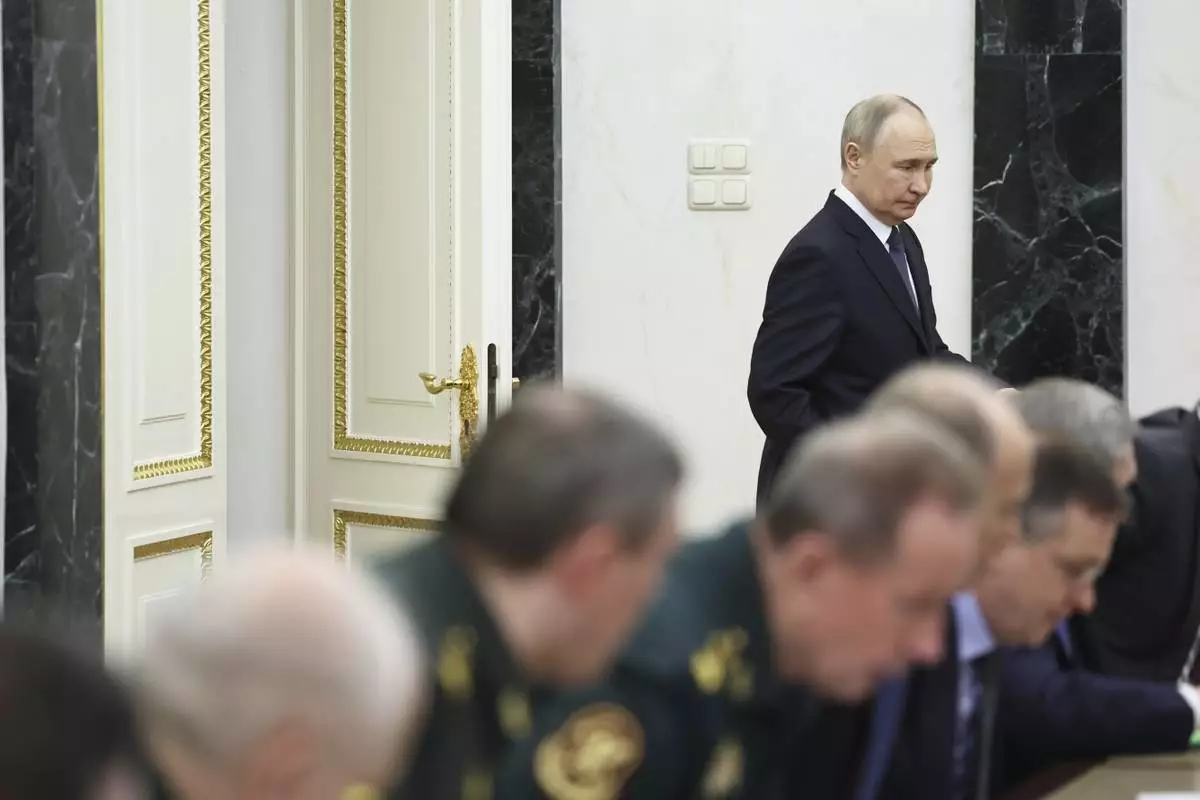
Russian President Vladimir Putin attends a meeting on forthcoming Russia-Ukraine talks in Istanbul, in Moscow, Russia, Wednesday, May 14, 2025. (Alexander Kazakov, Sputnik, Kremlin Pool Photo via AP)
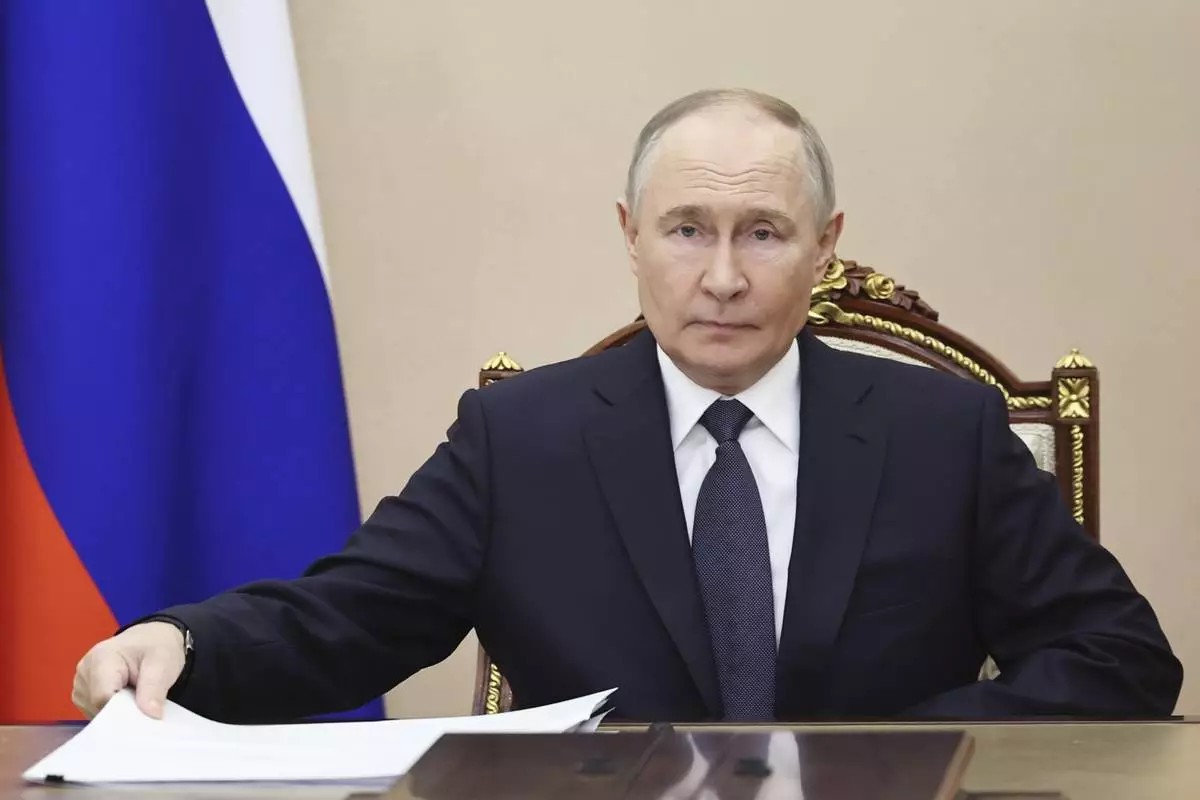
Russian President Vladimir Putin attends a meeting on forthcoming Russia-Ukraine talks in Istanbul, in Moscow, Russia, Wednesday, May 14, 2025. (Alexander Kazakov, Sputnik, Kremlin Pool Photo via AP)






